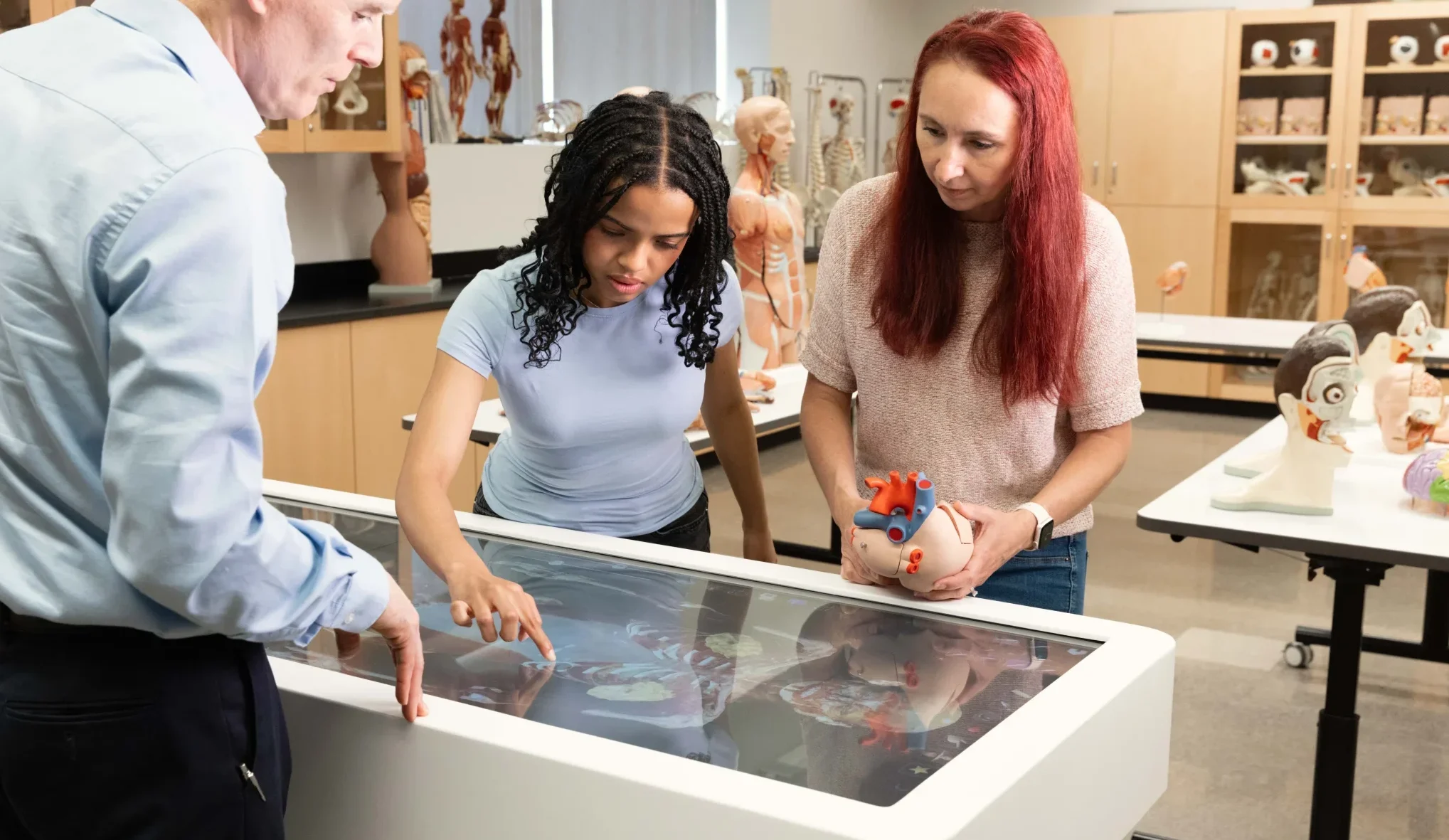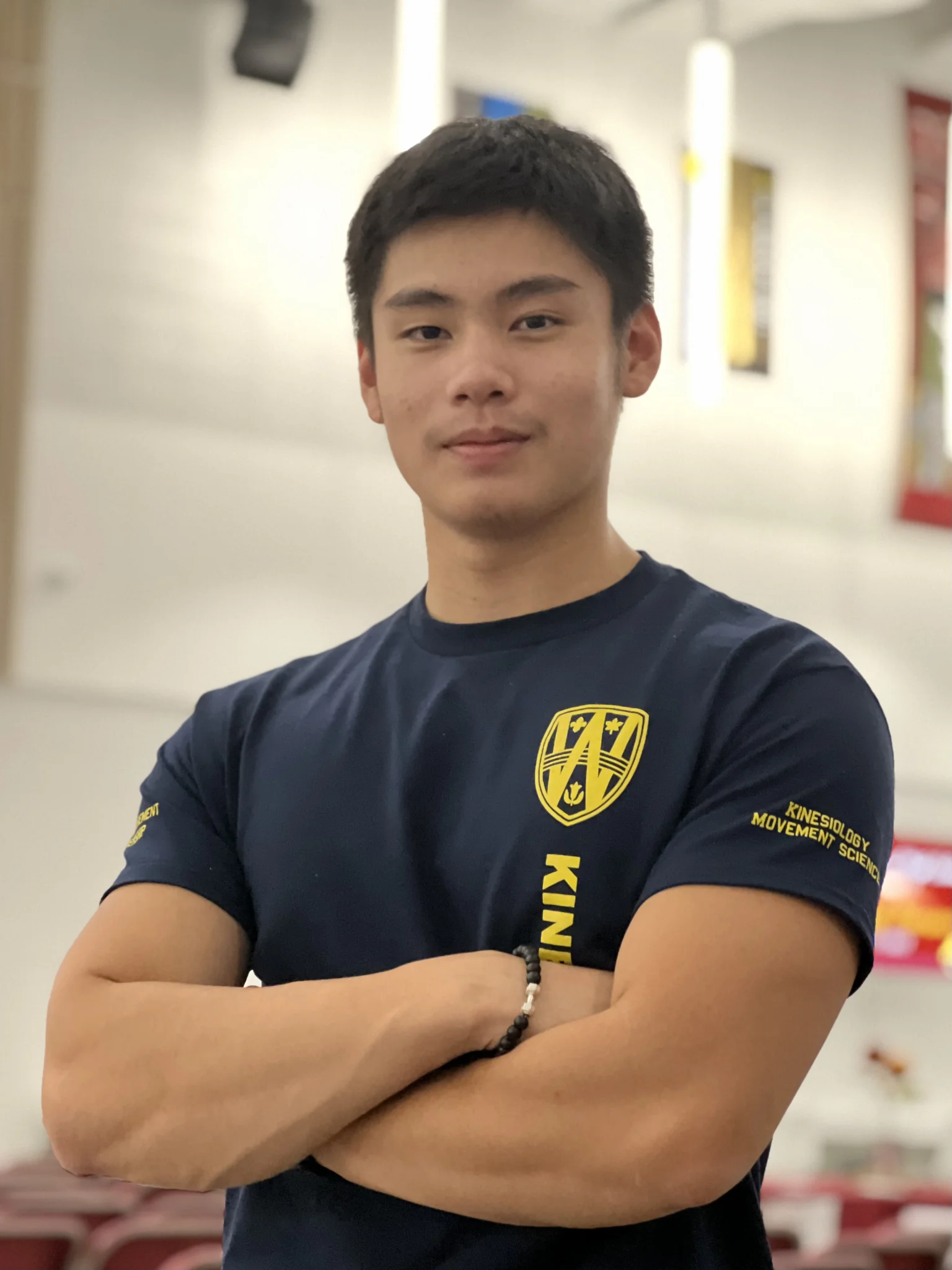
Program Overview & Highlights
- Co-op Opportunity
- Honours 4-Year Program
- Thesis Available
- BSc
Our students are leaders with strong critical thinking skills. Our grads go on to become registered kinesiologists, physicians, physiotherapists, teachers, researchers/consultants, fitness trainers and facility owners, marketing managers, coaches, and general managers of pro sports teams, just to name a few. Our grads are in demand —98% are employed in the first six months after graduation.
Focusing on the “human” in movement science and active living will provide you with all of the tools to become a leader in health and a variety of other industry sectors. You’ll like the family feel of this faculty, and there are lots of opportunities for hands-on learning through co-op, internships, community outreach, and conducting research with our leading scientists in state-of-the-art labs. Our program helps you position yourself for a career in a variety of industries, including healthcare, sport and recreation, manufacturing and more.
DEGREE COMPLETIONS:
- St. Clair College Fitness and Health Promotion diploma
- Fanshawe’s Fitness and Health Promotion diploma
- Fanshawe’s Recreation and Leisure Services diploma
Learn More About Our Program
What Lancers Are Saying

Benjie Roberto
Human Kinetics, Kinesiology and Health Studies StudentAdmission Requirements
High School Student from Canada
Course Requirements, Fall 2025: One of Biology/SBI4U, Chemistry/SCH4U, or Physics/SPH4U, English/ENG4U
Course Requirements, Fall 2026: One of Biology/SBI4U, Chemistry/SCH4U, or Physics/SPH4U, English/ENG4U, and one of MHF4U or MCV4U
Minimum Average: 70%
(70% in English/ENG4U and 70% in one of Biology/SBI4U, Chemistry/SCH4U, or Physics/SPH4U)
Mean Average: 85%
Note: Co-op available; apply during Year 1
High School Student from Outside Canada and the United States (International)
Course Requirements, Fall 2025: One of Biology/SBI4U, Chemistry/SCH4U, or Physics/SPH4U, English/ENG4U
Course Requirements, Fall 2026: One of Biology/SBI4U, Chemistry/SCH4U, or Physics/SPH4U, English/ENG4U, and one of MHF4U or MCV4U
Minimum Average: 70%
(70% in English/ENG4U and 70% in one of Biology/SBI4U, Chemistry/SCH4U, or Physics/SPH4U)
Mean Average: 85%
Note: Co-op available; apply during Year 1
Language Requirements
To review the most up-to-date information on Undergraduate Language Requirements: See undergraduate language requirements.
Academic Calendars
Career Tracks
- Professional school (medicine, pharmacy, dentistry, chiropractics, physiotherapy)
- Registered Kinesiologist
- Ergonomist
- Sport Psychology Consultant
- Human Factors Specialist
- Occupational Therapist